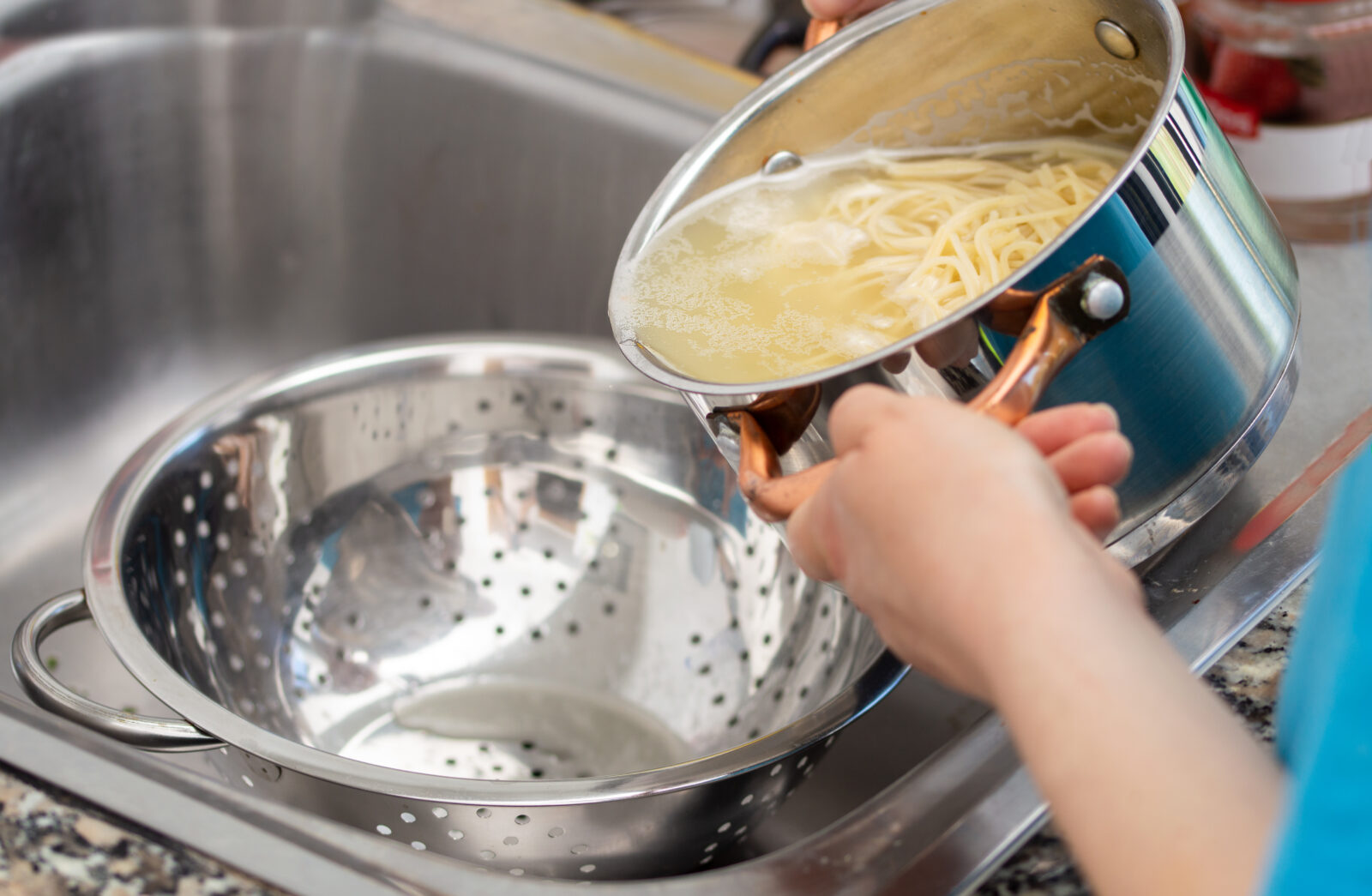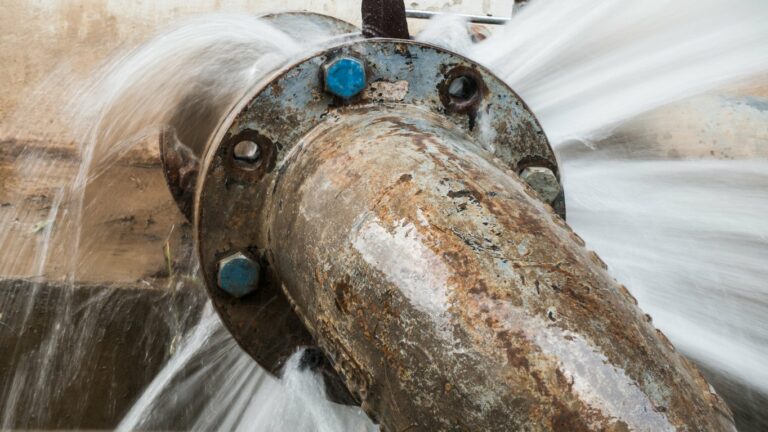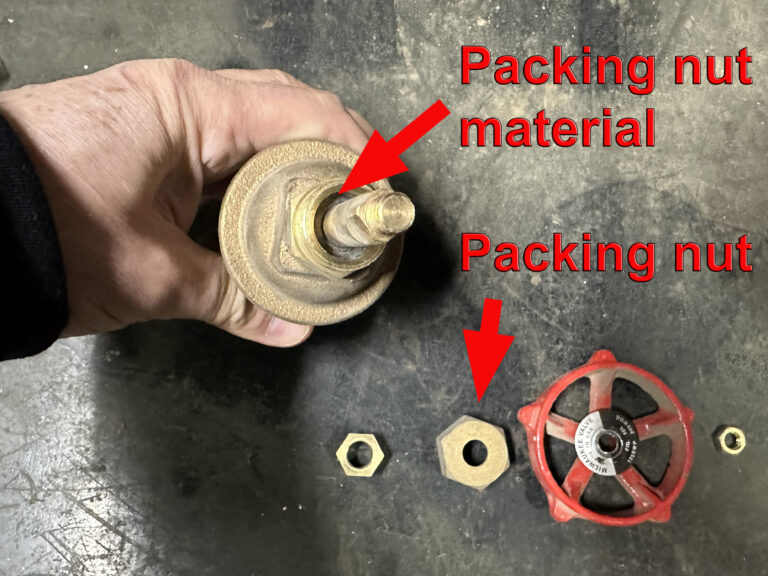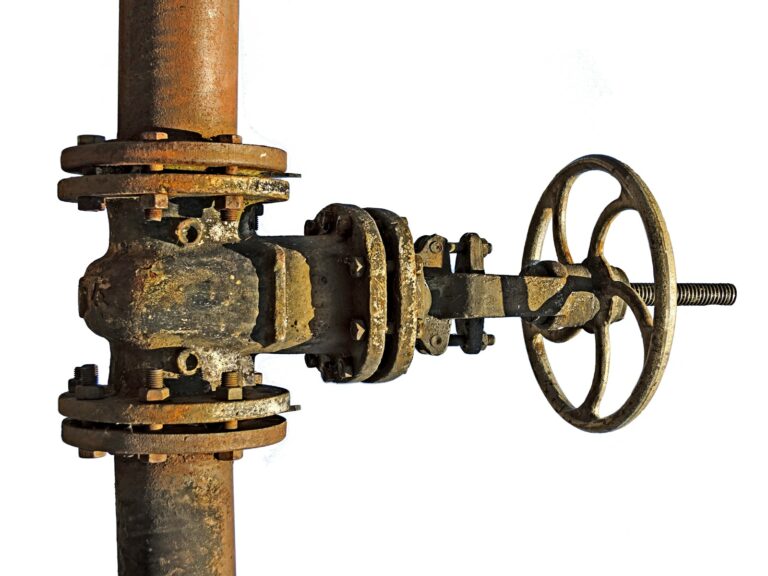As most of us already know, plastic drain pipes have become a staple in most of our modern plumbing systems. This is true due to their relatively low cost, ease of installation, and inherent resistance to corrosion. However, a common question arises when it comes to the use of boiling water and plastic drain pipes.
While drain pipes and hot water pose no issue, the question arises of can plastic drain pipes withstand the heat of boiling water, and what happens when they are exposed to boiling water. A general rule to keep in mind when asking will boiling water damage drain pipes is that it also depends on the material the drain pipes are made out of.
In the comprehensive guide that follows, we’ll explore the different types of plastic drain pipes, the effects boiling water has on them, and whether it is safe to pour boiling water down plastic drain pipes. If you would like more technical information about how heat affects plastic pipes read Charlotte Pipe’s White Paper Report.
The 4 Primary Types of Plastic Drain Pipes:
Before we dive into the impact of combining boiling water and plastic drain pipes, it’s crucially important to understand the various types of plastics used to manufacture drain pipes for plumbing. It’s important to take note that different plastics exhibit varying degrees of heat resistance, resistance to chemicals, and overall durability. Also, note that boiling water cools rapidly inside a drain system, therefore kitchen drain pipes and hot or boiling water are a particular concern since they come into constant direct contact with each other.
Please also note that not all jurisdictions allow for the use of plastic pipes, and some restrict where and how they can be used. Furthermore, other areas of your house sewer and drain system can be cast iron, which is impervious to boiling water. With that having been said, the 4 most common types of plastic drain pipes include the following:
- PVC (Polyvinyl Chloride): PVC is a widely used plastic in plumbing due to its cost-effectiveness, versatility, and ease of installation. PVC pipes are known for their durability and resistance to corrosion and extremes in PH levels in various water conditions. PVC pipes are commonly used for drainage and vent systems in residential and commercial buildings.
- ABS (Acrylonitrile Butadiene Styrene): ABS is another popular plastic used in drain pipes. ABS pipe is known for its resistance to impacts, and it can withstand a wide range of temperatures. ABS pipes are commonly used for drainage, waste, and vent systems.
- PE (Polyethylene): High-density polyethylene (HDPE) and low-density polyethylene (LDPE) are types of polyethylene that are also used as drain pipe materials. HDPE is particularly well known for its high strength and durability, which makes it suitable for both above-ground and below-ground applications as well.
- PP (Polypropylene): Polypropylene is a versatile plastic with good resistance to heat and chemicals. PP pipes are widely used in various drainage systems. This is particularly true in areas where resistance to extreme chemical conditions is required.
Effects of Boiling Water and Plastic Drain Pipes:
The effects of boiling water and plastic drain pipes can vary depending on the type of plastic drain pipe being used. While plastics are generally resistant to high temperatures, extended exposure to boiling water can lead to structural changes, warping, or even failure.
It’s important to note that in most home drain circumstances drain pipes are not exposed to boiling water, or not exposed for any length of time. Now let’s go and explore the impact of boiling water on specific types of plastic drain pipes:
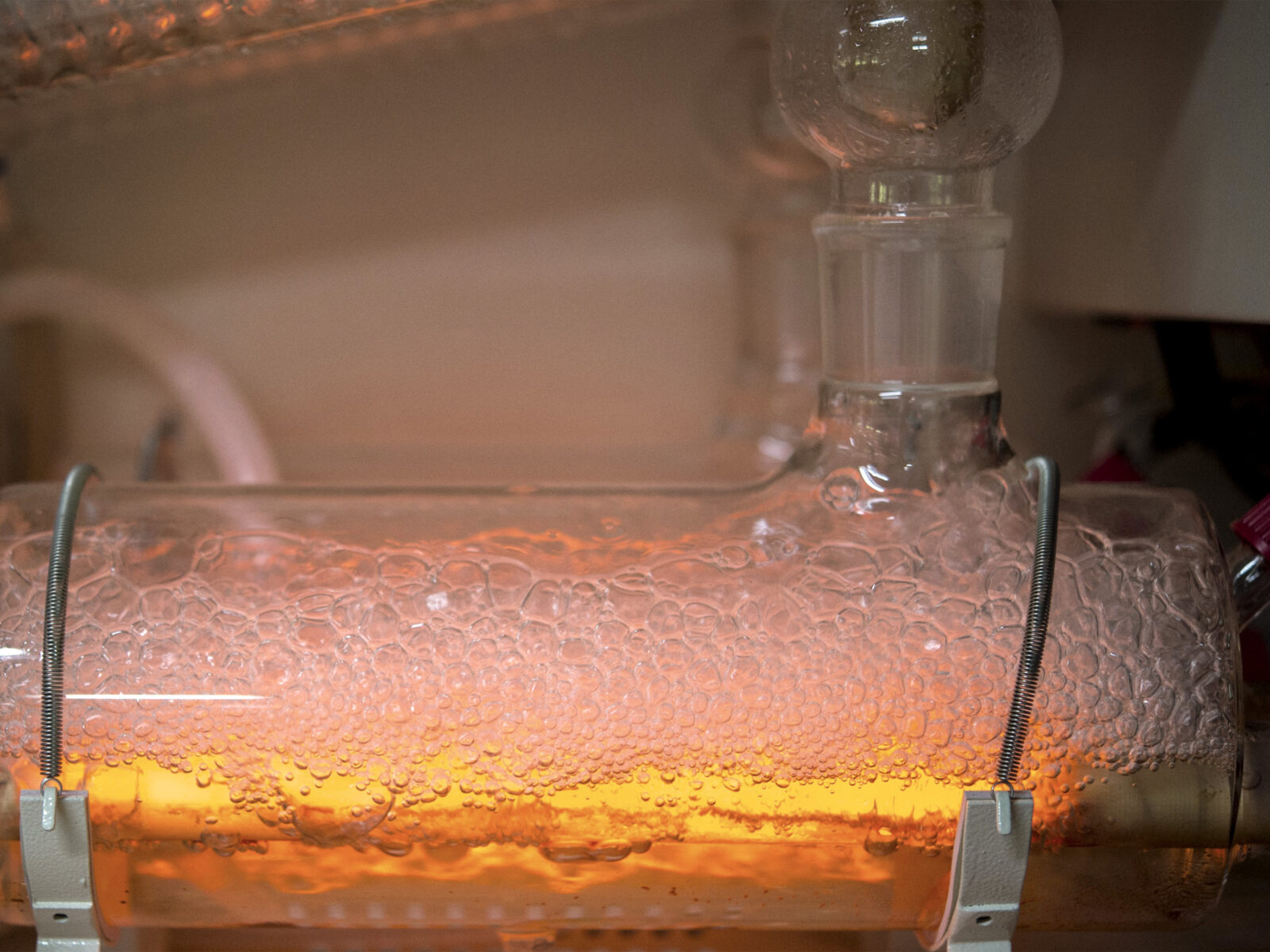
1. PVC (Polyvinyl Chloride):
PVC pipes are probably the most widely used plastic in plumbing, but prolonged exposure to boiling water can soften and distort them. Prolonged contact with boiling water may cause PVC pipes to lose their shape, leading to potential leaks or blockages.
It’s essential to note that PVC is designed for a maximum service temperature of about 140 degrees, and prolonged exposure to temperatures above this limit (boiling water is typically around 212 degrees) can compromise its structural integrity.
2. ABS (Acrylonitrile Butadienes Styrene):
ABS pipes generally have a higher heat resistance compared to PVC. While they can withstand exposure to boiling water better than PVC, prolonged contact may still cause warping or distortion. It’s advisable to limit the use of boiling water in ABS pipes to prevent potential damage.
3. PE (Polyethylene):
High-density polyethylene (HDPE) pipes have excellent resistance to high temperatures, they are likewise less prone to distortion when exposed to boiling water. Even with that having been said, caution should be exercised. This is especially true with low-density polyethylene (LDPE), as it may soften at higher temperatures.
4. PP (Polypropylene):
Polypropylene pipes exhibit good resistance to high temperatures and are much less likely to be affected by boiling water. PP when used as drain pipes is known for its durability and resistance to chemicals. These character traits made them suitable for various plumbing applications and uses. As always, check your local plumbing code before using any material.
Are Boiling Water And Plastic Drain Pipes A Safe Mix?
While occasional exposure to boiling water may not cause immediate damage to plastic drain pipes, it’s essential to exercise caution. The following guidelines can help ensure the safe use of boiling water when entering it into your plastic drains, and answer the question many folks ask – what about boiling water and plastic drain pipes?
- Limiting The Time Exposure Of Plastic Drain Pipes To Boiling Water:
- Always avoid prolonged exposure of plastic drain pipes to boiling water. Brief contact, such as pouring hot water from a large pot down the drain, is generally considered safe.
- Use Hot Tap Water Instead Of Boiling Water:
- Whenever possible, use hot tap water rather than boiling water when it will immediately enter your drain pipes. Hot tap water is at a greatly lower temperature than boiling water and poses no risk of damage to plastic drain pipes.
- Consider The Pipe Material Of Your Drain System:
- Be mindful of the type of plastic being used for your drain pipes. Some plastics, like polypropylene, have better heat resistance than others. If your drain pipes are made from any metallic material, boiling water poses no danger whatsoever.
- Monitor Your Drain Pipes Condition:
- Regularly inspect your plastic drain pipes for signs of distortion, warping, leaking pipe joints, or damage. This is as simple as taking a peek under each of your sinks. If you ever happen to notice any pipe issues, consult a plumbing professional for further assessment.
What Happens if You Boil PVC Drain Pipe?
We are all well aware that PVC (Polyvinyl Chloride) is a widely used plastic in plumbing. It’s therefore essential to understand the potential consequences of boiling PVC pipes (not that most folks would ever do that). Boiling PVC pipes can lead to several adverse effects that are both related to the material and pose health risks as well:
- Softening and Distortion:
- PVC as a material softens at elevated temperatures, and boiling water can cause the pipe to lose its shape. This softening of the PVC may lead to distortion, warping, or sagging.
- Weakening of the PVC Material Itself:
- Prolonged exposure to boiling water can weaken the molecular structure of PVC. Prolonged exposure to boiling water would certainly compromise the strength and durability of the PVC pipe.
- Increased Vulnerability to Leaks on the PVC Pipe and Pipe Joints:
- After prolonged contact with boiling water, there can be a combination of softening and weakening that can make PVC pipes more susceptible to leaks or ruptures.
- Release of Chemicals From The PVC Pipe:
- Prolonged boiling of PVC pipes may release harmful chemicals into the water or the air. These chemicals include chlorine and phthalenes, which can be hazardous to your health.
- Reduced Longevity of the Plumbing Drain System:
- The overall lifespan of PVC drain pipes may be reduced when regularly exposed to boiling water.
A Conclusion About Boiling Water And Plastic Drain Pipes
A conclusion about boiling water and plastic drain pipes, as carefully stated above, is that while plastic drain pipes offer many advantages in plumbing systems, it’s critical to be mindful of plastic drain pipe’s limitations. This is particularly true when it comes to prolonged exposure to boiling water. PVC drain pipes are more susceptible to damage from boiling water compared to other plastics like polyethylene and polypropylene, and of course metallic pipe materials.
If you wish to ensure the longevity and integrity of your plumbing drain system, it is recommended to limit (but not eliminate) the use of boiling water in plastic drains. Try to opt for hot tap water whenever possible, and monitor the condition of your pipes regularly.
If you have any concerns about the impact of boiling water inside your plastic drain pipes in your plumbing drain system, you should consult with a local licensed and professional plumber for personalized advice and solutions. If you happen to reside in the NYC metropolitan area, Balkan Sewer And Water Main Service is considered the team to trust for any drain, main, or sewer issue.

